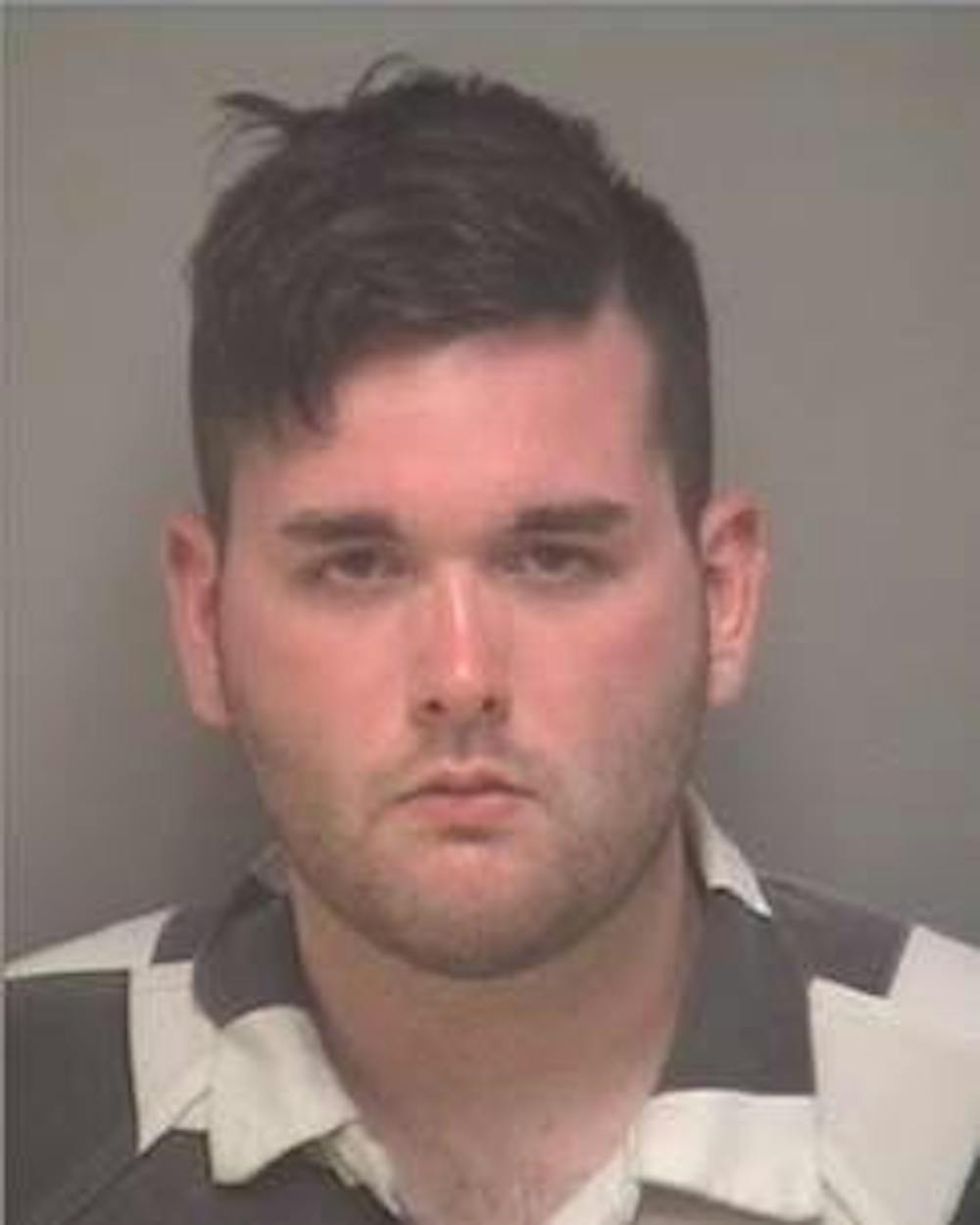Jury selection began Monday in Charlottesville Circuit Court for the trial of the man accused of driving his car into a crowd of people protesting the white nationalist Unite the Right rally in August 2017, injuring dozens and killing 32-year-old Heather Heyer.
James Alex Fields Jr. faces charges of one count of first degree murder and five counts of aggravated malicious wounding, each of which carries a maximum sentence of life in prison. He is also charged with one count of hit and run and three counts of malicious wounding, each of which carries a maximum sentence of 40 years in prison.
The trial is scheduled to last from Nov. 26 to Dec. 14.
The courtroom was packed with reporters, sketch-artists and community members. Fields entered the room amid murmurs. Multiple armed officers stood outside the courthouse, and several barricades were set up in anticipation of protests.
Fields has been held in the Albemarle-Charlottesville Regional Jail since his arrest last August.
Judge Richard E. Moore is presiding over the trial. A total of 16 people will be selected from the 360-person pool of potential jurors — 12 to officially sit on the jury and four alternates. Jurors are not permitted to view or listen to media accounts of this case until after the trial is over.
On the first day of the jury selection process, Moore randomly selected 28 jurors’ numbers from a box. Then, Moore asked the general pool of jurors a series of questions designed to unveil their biases surrounding the case and replaced jurors with alternates where appropriate. Subsequently, both the prosecution and the defense asked the jurors several questions. When court recessed for lunch, Judge Moore and the counselors prepared to interrogate each of the 28 jurors individually.
Moore said that jurors will inevitably have heard of the events in question in this trial through the media. However, Moore insisted that all jurors must set aside any preconceived notions or opinions in order to give Fields an unbiased trial.
In August, Fields’ lawyers sought a change of venue for the trial, citing the profound effect the deadly crash had on Charlottesville residents. Moore argued an unbiased jury could be seated and took the motion under consideration with a plan to reconsider it during the trial.
According to the defense, Fields plans to plead not guilty to all charges. He is being represented by attorney John Hill and public defender Denise Lunsford. Lunsford and Hill asked each juror if they believed that violence was permissible in self-defense.
At the hearing, the defense told potential jurors they plan to call up multiple witnesses, including specialists from the University of Virginia Institute of Law, Psychiatry and Public Policy, University and Charlottesville police officers and Fields’s mother, Samantha Bloom.
Meanwhile, the prosecution, consisting of the Commonwealth of Virginia’s Attorney Joseph Platania and Senior Assistant to the Commonwealth of Virginia’s Attorney Nina-Alice Antony, told jurors they will call several witnesses, DNA specialists and local, state and University police officers.
The prosecution warned potential jurors that they intend to present sensitive and graphic images and video as evidence.
Fields was also separately indicted on 30 federal charges in June, including 29 counts of hate crime acts and one count of bias-motivated interference with a federally protected activity resulting in death, which carries a maximum sentence of the death penalty. The federal trial has not been scheduled yet.
Although Fields may face the death penalty in association with his federal charges, the maximum sentence he can receive from the Charlottesville Circuit Court is life in prison.
Jury selection will continue throughout the week.







